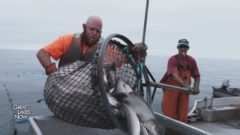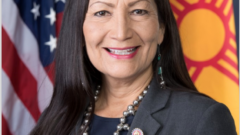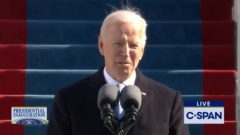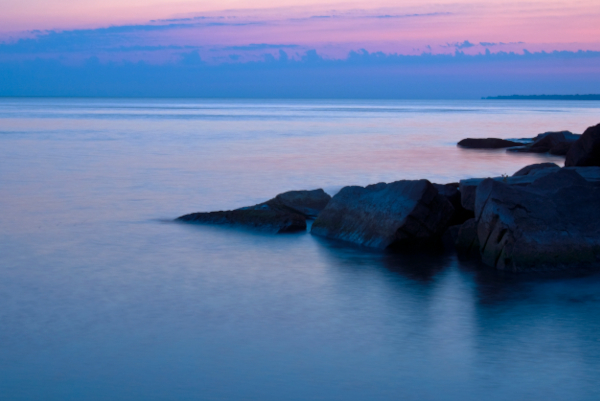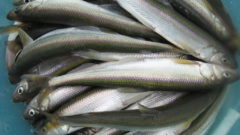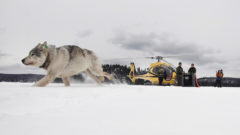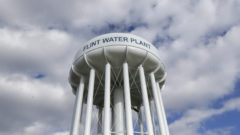President Biden’s First Day Executive Actions: A Brief Overview
With the inauguration of Joe Biden as the 46th President of the United States, the new Administration quickly took important steps to enhance federal action on the COVID pandemic, begin to redress environmental rollbacks, and prioritize the important work of embedding equity across federal policymaking. The Coalition recognizes the Biden Administrations quick executive actions as essential “starting points” in addressing the critical needs of our Great Lakes communities.
These executive actions include:
- Providing Economic Relief and Support to Working Families, in recognition of the unprecedented housing affordability crisis triggered by the COVID-19 pandemic the order extends federal eviction and foreclosure moratoriums through at least March 31, 2021.
- Rejoining the Paris Agreement on Climate Change, re-committing the US to the Paris Climate Agreement. The US will once again become a Party to the agreement in 30 days.
- Regulatory Freeze Pending Review, pausing any ongoing regulatory rulemakings and decisions from moving forward prior to the new Administration’s review.
- Protecting Public Health and the Environment and Restoring Science to Tackle the Climate Crisis, directing all executive departments and agencies to review actions harmful to public health, environment, and unresponsive or unsupported by the best available science.
- Advancing Racial Equity and Support for Underserved Communities Through the Federal Government, launching a government-wide initiative to advance racial equity, “embedding equity across federal policymaking and rooting out systemic racism and other barriers to opportunity from federal programs and institutions.”
- Preventing and Combating Discrimination on the Basis of Gender Identity or Sexual Orientation, directing federal agencies to ensure protections under federal anti-discrimination statutes are provided to all including protecting the rights of LGBTQ+ persons.
The Biden Administration has the opportunity to protect Great Lakes families during this COVID pandemic and equitably accelerate progress to restore the Great Lakes, protect our drinking water, and help the most vulnerable communities overcome the serious threats of pollution and unsafe water. We applaud these important first steps and look forward to working with the Administration and Congress to advance clean water priorities in the Great Lakes region, energizing our economy, standing up for racial equity, and confronting the climate crisis.
More details on specific actions:
Providing Economic Relief and Support to Working Families
What does it do?
The executive order, in recognition of the unprecedented housing affordability crisis triggered by the COVID-19 pandemic, extends federal eviction and foreclosure moratoriums through at least March 31, 2021.
Why is it important?
Ensuring families can safely remain in their homes during this pandemic and concurrent economic downturn that has left many unable to meet increasingly unaffordable housing and utility costs is essential. Extending federal protections and urging Congress to provide much needed aid is an important step, though after Congress took an initial step to address the unaffordability of water through the creation of a temporary water affordability program under the recently passed COVID relief package more action must be taken. We urge both the new Administration and Congress to quickly take up efforts to establish a nation-wide water shutoff moratorium and safe reconnection for all households for the duration of this national emergency.
Rejoining the Paris Agreement on Climate Change
What does it do?
President Biden, alongside several Executive Orders, re-committed the US to the Paris Climate Agreement. The US will once again become a Party to the agreement in 30 days.
Why is it important?
Climate change is an existential threat, leading to significant and far-reaching impacts across the Great Lakes region and exacerbating the public health and environmental challenges we face. Addressing this threat globally, nationally, and regionally is essential as we work to create more sustainable and resilient communities. Re-joining the Paris Climate Agreement is an important first step in reviving a comprehensive federal response necessary to protect our region and prepare it for the changes we are already experiencing today.
Protecting Public Health and the Environment and Restoring Science to Tackle the Climate Crisis
What does it do?
In a critical step, the executive order directs all executive departments and agencies to review actions taken over the last four years harmful to public health, environment, and unresponsive or unsupported by the best available science. This includes reviews of the Trump Administration’s:
“Navigable Waters Protection Rule” (85 Fed. Reg. 22250), the Trump Administration’s weakening of Clean Water Act protections through the redefining of waters of the U.S.
“Clean Water Act Section 401 Certification Rule” (85 Fed. Reg. 42210), the Trump Administration’s undermining of state and tribal authority to protect their waters through the review and certification of federal Clean Water Act permits.
“National Primary Drinking Water Regulations: Lead and Copper Rule Revisions” (86 Fed. Reg. 4198), the Trump Administrations insufficient revision of standards to protect drinking water.
Why is it important?
The success of Great Lakes restoration and the necessary work to provide clean water for all relies upon bipartisan, presidential leadership. Today legacy pollutants persist, well-known contaminants like lead continue to make drinking water unsafe, emerging contaminants like PFAS are being uncovered, climate change is overwhelming aging infrastructure, and changes to federal regulations have weakened clean water protections. Committing to review key environmental review, public participation, and clean water regulations is an important step in addressing these concurrent threats head-on.
Advancing Racial Equity and Support for Underserved Communities Through the Federal Government
What does it do?
The Executive Order will launch a government-wide initiative to advance racial equity, “embedding equity across federal policymaking and rooting out systemic racism and other barriers to opportunity from federal programs and institutions” This includes: establishing advancing equity for all as a government-wide responsibility; directing agencies to undertake baseline reviews of their policies and programs; tasking the Office of Management and Budget (OMB) to work to allocate federal resources more equitably, empowering and investing in communities of color and other underserved communities. This move, importantly, will also rescind the Trump Administration’s order limiting the ability of federal agencies and contractors from implementing diversity and inclusion training.
Why is it important?
The Great Lakes face serious and urgent threats, threats that too often disproportionately impact people of color, low-income communities, and indigenous people. The Biden Administration has the opportunity to forcefully and effectively address this ongoing and historically disproportionate impact by centering equity and addressing environmental injustices across federal agencies and programs. This is an essential step to begin the difficult task of understanding the inequities and barriers in our system and begin to provide equitable benefits of environmental restoration and clean water protections to all.
The post President Biden’s First Day Executive Actions: A Brief Overview appeared first on Healing Our Waters Coalition.
Healing Our Waters Coalition
https://healthylakes.org/president-bidens-first-day-executive-actions-a-brief-overview/

